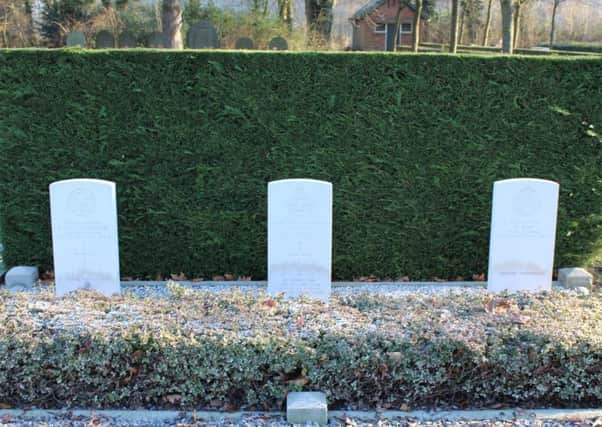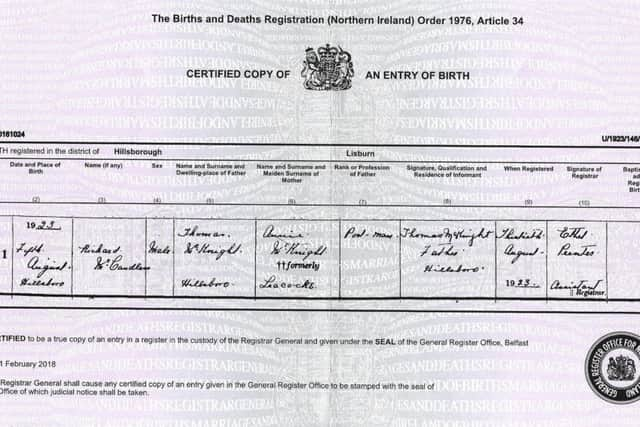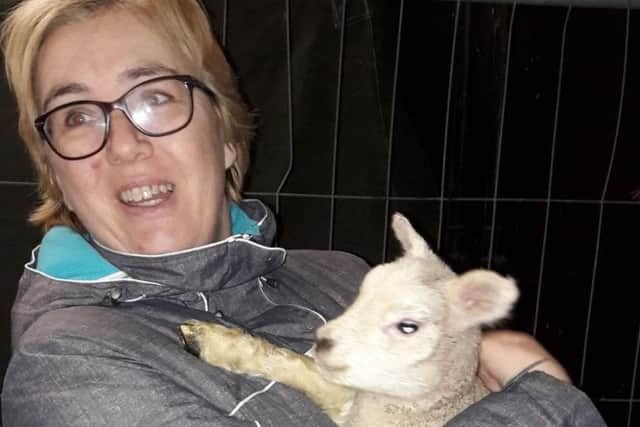Dutch woman appeals for help over Northern Ireland-born war hero


Ilse Thuy-van de Velde, 43, has adopted three war graves in Kloosterzande cemetery in the Netherlands.
She explained: “The reason why I have adopted three war graves is because I think we have to recognise and appreciate what these men did for us to liberate our country.
Advertisement
Hide AdAdvertisement
Hide Ad“For me it is personal. My grandfather did hard labour building the Atlantikwall in Breskens and Groede on the Dutch coast.


“Other family members joined the local resistance groups in the eastern part of Zeeuws-Vlaanderen.
“From an early age my parents instilled in me deep feelings of respect for all those who had lost their lives fighting for other people’s freedom.
“These feelings of respect have to be passed on to future generations so that these soldiers, these freedom fighters will never be forgotten.”
Advertisement
Hide AdAdvertisement
Hide AdThe three men whose graves Ilse has adopted 18 months ago under an adoption programme by the Commonwealth War Graves Commission lie buried at a cemetery in Kloosterzande, part of the district of Hulst.


They are Leading Aircraftman Frank Blood, Sapper Robert Kirk and Rifleman Richard McCandless McKnight.
It is the latter rifleman who was born in Northern Ireland whom Ilse has been able to trace very few details about.
She said: “Frank Blood and Robert Kirk – I have been in contact with friends and relatives. It is only Richard, I know nothing about him.”
Advertisement
Hide AdAdvertisement
Hide AdShe said she was able to get a copy of Richard’s birth certificate after she called the NI authority who held the document: “I told them my story and they sent me his birth certificate. They were moved that I – a foreign lady – cared about a man killed in 1944.”


It lists his date of birth as August 5, 1923 and his place of birth as ‘Hillsboro’.
Richard McCandless McKnight had the rank of Rifleman with 7th Battalion of ‘The Cameronians’ regiment from Scotland.
Although most recruitment for Scottish regiments would naturally be in Scotland, the Cameronians arrived in Northern Ireland in 1941 so it is understood this could have been when he was recruited.
Advertisement
Hide AdAdvertisement
Hide AdIn October 1944 the regiment landed at the Belgian port of Ostend.


From Ostend the battalion was involved in ‘Operation Infatuate’ and it was during these battles that Rifleman McKnight lost his life.
Ilse said she is hoping to get in touch by email ([email protected]) with living relatives of Richard McCandless McKnight or anyone who knew the family.
She explained what it meant to adopt a war grave: “Adopting a grave means that you remember the deceased on May 4 and November 11, both remembrance days.
Advertisement
Hide AdAdvertisement
Hide Ad“The district of Hulst ignores those dates which means there are no commemoration services held.
“I am going to have a talk with the mayor about that because I think it a shame.
“We owe it to these people that they are remembered. They paid the ultimate price. They deserve our respect.
“I also visit the graves on the birth and death days of the brave men and also on December 24.”